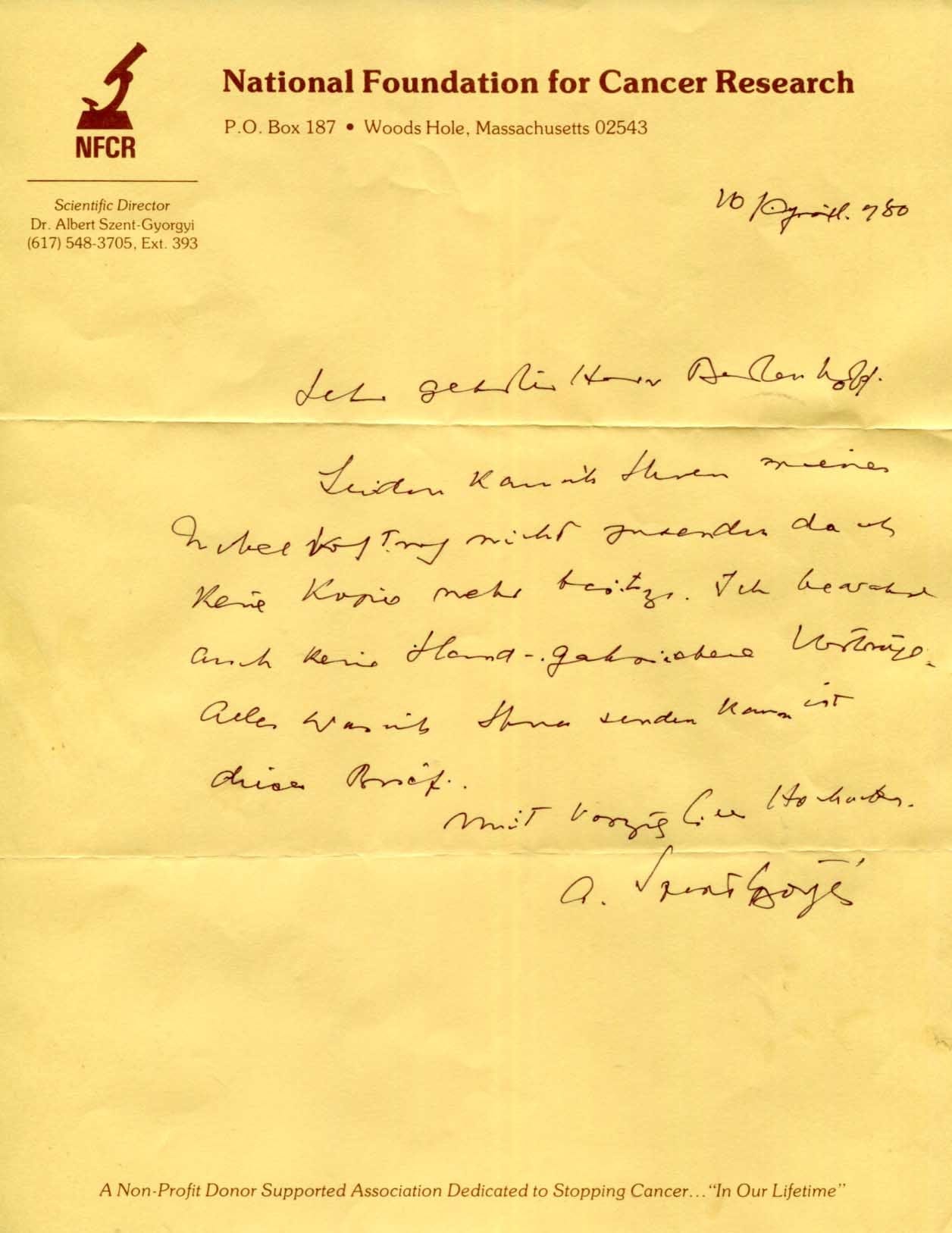Beschreibung
"Sehr geehrter Herr Berkenkopf,
Leider kann ich Ihnen meinen Nobelvortrag nicht zusenden da ich keine Kopie mehr besitze. Ich besitze auch keine Hand-geschriebene Vorträge. Alles was ich Ihnen senden kann ist dieser Brief.
mit vorzüglicher Hochachtung - A. Szent-Györgyi"
Weitere Infos zur Person
Profession:
(1893 - 1986) Ungarischer Physiologe, der 1937 den Nobelpreis für Physiologie oder Medizin erhielt
Geburtsjahr: 1893
Echtheitszertifikat
Zahlung & Sicherheit
Deine Zahlungsinformationen werden sicher verarbeitet. Wir speichern keine Kreditkartendaten und haben auch keinen Zugang zu deinen Kreditkartendaten.

